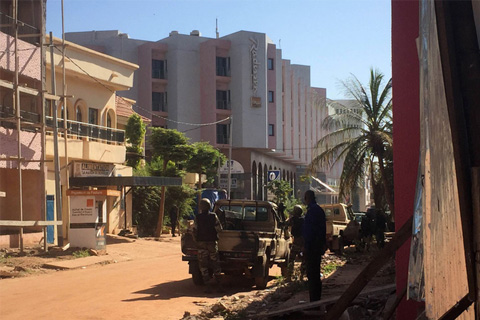Mali Tragedy Shows Chinese Companies' Need for Support Systems

The deaths of three Chinese executives in an attack on November 20 in a hotel in Mali were both shocking and distressing. The company they worked for, state-owned China Railway Construction Corp. (CRCC), is also feeling a sudden loss to its management team.
The dead are a general manager and deputy general manager of China Railway International Corp., the overseas business arm of CRCC, and the head of CRCC's West Africa operations. The violent attack caused the biggest loss for Chinese companies' overseas operations in recent years.






